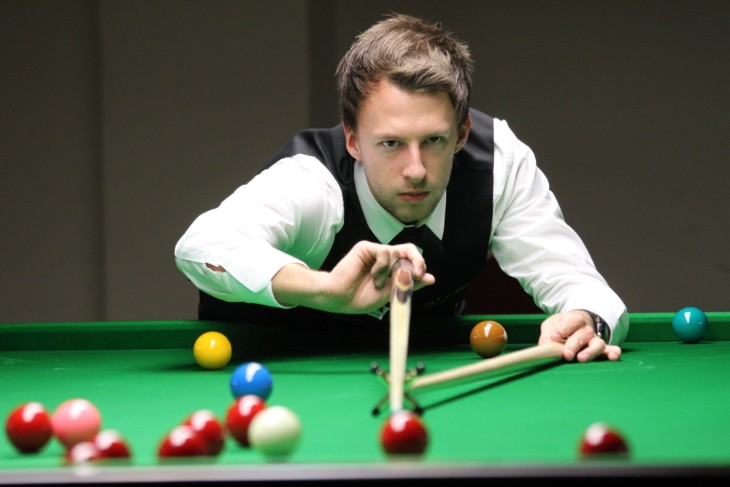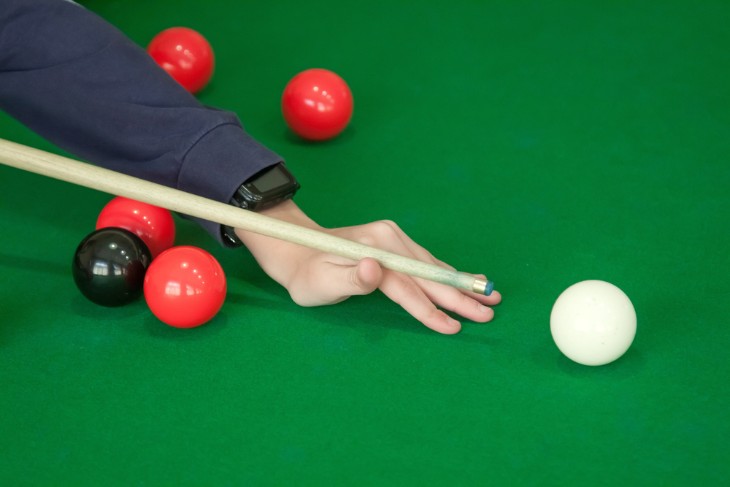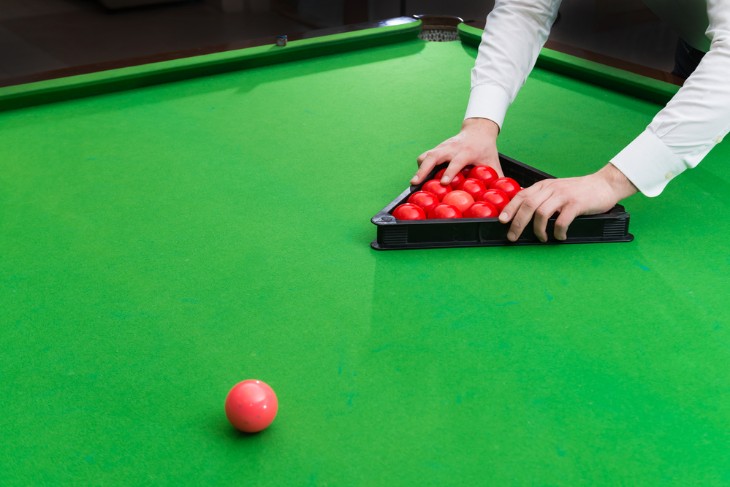Snooker, with its dramatic matches and precise shots, captivates audiences worldwide. But what happens when the tournaments end and the players step away from the spotlight? The off-season in snooker, often unseen by fans, is a critical time for players.
During this time, players switch from the high-pressure environment of tournaments to a phase of rest, reflection, and preparation. The off-season is not just a break from playing; it's a time for players to recharge, both physically and mentally.
In this article, we take an inside look at the off-season in snooker. We explore how players utilize this time to enhance their skills, recover from the season's demands, and prepare for future challenges. Understanding this aspect of snooker gives us a fuller picture of what it takes to excel in this precision-driven sport.
Understanding the Off-season in Snooker
The Dynamics of the Snooker Calendar
The snooker calendar shapes a player's year, balancing intense competition with crucial off-season periods. Running mainly from May to April, the snooker season is packed with tournaments that demand constant travel, practice, and competition. This schedule puts players under a lot of pressure, both physically and mentally.
During the season, players hop from one event to another, often with little time for rest. They're always in the public eye, focusing on winning games and climbing rankings. This relentless pace is part of what makes snooker so demanding and thrilling.
The off-season, however, provides a stark contrast. It's a quieter time when players step away from the competitive arena. This break is typically several weeks long, offering a much-needed respite. It's a chance for players to rest, recover, and regroup.
This period is also crucial for personal growth and skill development. Players use the off-season to reflect on their performances, identify areas for improvement, and work on their game away from the pressure of tournaments.
The dynamics of the snooker calendar are a blend of intense competition and strategic breaks. The off-season plays a vital role in a player's success, offering time for rest and preparation that is essential for peak performance in the demanding world of professional snooker.
The Importance of Rest and Recovery
Rest and recovery are key components of a snooker player's off-season. This time away from the competitive circuit is vital for both physical and mental well-being. After months of intense focus and high-stakes play, the off-season provides a chance for players to step back and recharge.
Physically, rest allows players to heal from any injuries or strains. Snooker, while not overly physically demanding, requires repetitive movements that can lead to muscle fatigue and strain, particularly in the back and arms. The off-season offers an opportunity to address these physical issues, ensuring players return to the table in top condition.
Mentally, the break is just as crucial. The mental stress of constant competition can be intense. Players need time to unwind and detach from the pressures of the game. This mental break helps maintain focus and motivation, key elements for success in snooker.
The off-season also allows players to spend time with family and friends, nurturing personal relationships that are often sidelined during the busy season. This social aspect is important for emotional balance and overall happiness, contributing positively to a player's mental health.
Rest and recovery during the off-season are essential for snooker players. They provide a time to heal physically, refresh mentally, and reconnect socially. These aspects are fundamental for players to maintain high performance levels and longevity in their snooker careers.

Training and Preparation during the Off-season
Individual Training Routines
During the off-season, snooker players focus on individual training routines tailored to their specific needs. This period is crucial for honing skills and working on aspects of the game that need improvement. Without the pressure of upcoming tournaments, players have the freedom to delve deeper into their techniques and strategies.
Players often use this time to fine-tune their shot precision, practice new shots, and work on consistency. The goal is to develop muscle memory for specific shots, ensuring they become second nature during competitive play. This targeted practice helps in sharpening skills that are crucial for high-pressure match situations.
Strength and endurance training are also part of these routines. Although snooker is not physically demanding like some sports, maintaining good physical health is important for stamina and overall performance. Exercises focusing on core strength, flexibility, and endurance play a significant role in a player’s training regime.
Mental training is another key aspect. Players might work with sports psychologists to enhance focus, build mental resilience, and improve concentration. Mental strength is as important as physical ability in snooker, especially in handling high-pressure scenarios during matches.
Individual training routines during the off-season are a mix of technical skill development, physical conditioning, and mental training. Tailored to each player’s needs, these routines are essential for maintaining and improving performance in the competitive world of snooker.
Physical Fitness and Nutrition
Physical fitness and nutrition play a significant role in a snooker player's off-season routine. Even though snooker is not physically demanding in the traditional sense, maintaining good fitness is crucial for overall performance.
Players focus on exercises that enhance their core strength and stability. A strong core is essential for snooker players, as it aids in maintaining a steady stance and control during shots. Exercises like planks, Pilates, and yoga are popular choices, as they improve core strength without building excessive muscle mass, which can hinder a player’s flexibility and fluidity of movement.
Cardiovascular fitness is also important. Activities such as jogging, swimming, or cycling help maintain endurance and overall health. Good cardiovascular health ensures players can maintain concentration and performance throughout long matches and tournaments.
Nutrition is another key aspect. Players often work with nutritionists to develop diets that support their training goals. Balanced diets, rich in nutrients, are essential for energy, focus, and recovery. Hydration is equally important, as even mild dehydration can impact concentration and mental agility.
Physical fitness and proper nutrition are critical during the off-season for snooker players. They help in building the physical and mental stamina needed for the demands of the sport, ensuring players are in peak condition for the competitive season ahead.
Mental Conditioning and Strategy Planning
Mental conditioning and strategy planning are crucial elements of a snooker player's off-season. This period provides an opportunity to develop mental strength and plan tactical approaches for the upcoming season.
Mental conditioning involves exercises that enhance concentration, boost confidence, and manage stress. Players often work with sports psychologists to build mental resilience. Techniques such as visualisation, mindfulness, and meditation are commonly used. These methods help players stay calm and focused during high-pressure moments in matches.
Strategy planning is another key focus. Players review past performances, identifying areas for tactical improvement. They analyze matches to understand their strengths and weaknesses, and those of their opponents. This analysis forms the basis for developing new strategies and game plans.
The off-season also offers time for players to set goals for the upcoming season. Goal setting helps in maintaining motivation and gives players a clear focus for their training. It’s about defining what they want to achieve and mapping out a plan to get there.
Mental conditioning and strategy planning are essential off-season activities for snooker players. They provide the mental tools and strategic insights needed for successful performances. Through focused mental training and careful planning, players prepare themselves for the challenges of the competitive snooker circuit.
The Role of Coaches and Support Staff in the Off-season
Personalized Coaching Sessions
Personalized coaching sessions are a key part of a snooker player's off-season. These sessions are tailored to each player’s specific needs, focusing on improving techniques and addressing weaknesses.
During the off-season, players work closely with their coaches to analyze and refine their playing style.
Coaches provide individualized feedback, helping players understand and correct technical flaws in their game. This one-on-one attention allows for detailed guidance that is not always possible during the competitive season.
These coaching sessions often involve breaking down complex shots, improving shot selection, and enhancing tactical play. Coaches use a variety of tools, including video analysis, to provide comprehensive feedback. This visual feedback is invaluable for players to see their play from a different perspective and make adjustments.
Coaches also help players in developing practice routines that they can follow during the off-season. These routines are designed to reinforce the skills worked on during the coaching sessions, ensuring continuous improvement.
Personalized coaching sessions play a crucial role in a snooker player's off-season. They provide specialized guidance and feedback, helping players refine their technique and strategy. This dedicated coaching time is essential for players to develop their skills and prepare for the challenges of the upcoming season.
Technical Analysis and Feedback
Technical analysis and feedback form an integral part of a snooker player’s off-season. This process allows players to dissect their game in detail, identifying key areas for improvement.
Coaches play a pivotal role in this technical analysis. They review footage from past matches, focusing on both successful and less effective shots. This review helps in pinpointing specific technical aspects that need refinement, such as cue action, stance, or shot execution.
Feedback based on this analysis is then provided to the players. It's constructive and detailed, offering clear guidance on what to work on. This feedback often includes suggestions for practice routines that target these specific areas.
Players use this feedback to gain a deeper understanding of their playing style. It helps them recognize patterns in their game, both positive and negative. This awareness is crucial for making conscious changes and improvements.
The off-season offers the time and space needed for this kind of in-depth analysis and reflection. Without the immediate pressure of upcoming tournaments, players can focus fully on this technical work.
Technical analysis and feedback are essential components of the off-season for snooker players. They provide valuable insights into a player’s game, guiding their training and development. This meticulous analysis is key to continuous improvement and staying competitive in the world of professional snooker.
Developing a Roadmap for the Next Season
Developing a roadmap for the next snooker season is a key focus during the off-season. This planning phase is crucial for setting goals and preparing a strategy for the upcoming competitive year.
Players, often with their coaches, outline objectives for the next season. These goals can range from improving rankings to winning specific tournaments. Setting clear targets gives players a focused direction for their training and efforts.
The roadmap also involves planning a tournament schedule. Players decide which events to participate in, based on their goals and the competitive landscape. This schedule is carefully crafted to balance the need for competitive play with adequate rest and practice time.
Part of this planning includes strategizing for specific tournaments. Players analyze the conditions and opponents they are likely to face. This analysis helps in tailoring their practice to simulate these conditions, ensuring they are well-prepared.
The off-season roadmap is not just about professional goals. It also incorporates personal development objectives, such as working on mental strength or pursuing educational opportunities. This holistic approach is important for maintaining balance and personal growth.
Developing a roadmap for the next season is a vital activity in the off-season for snooker players. It involves setting goals, planning a tournament schedule, and strategizing for specific events. This comprehensive planning ensures players are well-prepared and focused for the challenges of the competitive season ahead.

Engagements Beyond the Snooker Table
Charity Work and Personal Endeavors
During the off-season, many snooker players engage in charity work and personal endeavours. These activities offer a fulfilling way to use their time away from the professional circuit. Let's explore how players contribute beyond the snooker table.
Engaging in charity work is common for many players. They participate in fundraising events, support local community projects, or become involved in causes close to their hearts. This not only helps those in need but also allows players to give back to the community. It's a way for them to use their public profile for positive impact.
Personal endeavours vary widely among players. Some pursue hobbies or interests that they don't have time for during the competitive season. These can include anything from learning a musical instrument to exploring new sports. Engaging in these activities provides a mental break from the rigours of professional play and contributes to a well-rounded lifestyle.
Others might focus on educational pursuits, such as taking courses or attending workshops. These endeavours are not just for personal satisfaction but can also provide skills useful in their snooker careers, like media training or sports psychology.
Charity work and personal endeavours are important aspects of a snooker player's off-season. These activities allow players to contribute positively to society, pursue personal interests, and develop new skills. They offer a valuable balance to the intense focus required during the snooker season.
Media Appearances and Building a Personal Brand
In the off-season, snooker players often focus on media appearances and building their brand. These activities are crucial for maintaining public visibility and enhancing their professional image. Let's delve into how players engage with media and work on their branding.
Media appearances can range from interviews and talk show participation to being featured in sports magazines or documentaries. These opportunities allow players to share their experiences, insights into the sport, and future aspirations. They also help in keeping the players in the public eye, sustaining fan interest even when there are no tournaments.
Building a personal brand is more than just media appearances. Players work on their online presence, especially on social media platforms. They share behind-the-scenes glimpses, training routines, and personal life snippets. This creates a connection with fans, making players more relatable and approachable.
Personal branding also involves collaborations with sponsors or participation in promotional events. These collaborations are not just for commercial benefits; they help players establish themselves as prominent figures in the sport.
Media appearances and building a personal brand are key off-season activities for snooker players. They help maintain visibility, connect with fans, and establish a strong personal image. This aspect of a player's career is as important as their performance on the snooker table, contributing to their overall success and popularity.
Conclusion
The off-season plays an integral role in the career of a snooker player. It’s a time that’s as important as the competitive season itself. Wrapping up, let’s reflect on why this period is crucial for players.
This time is a period of growth, preparation, and rejuvenation. Understanding its significance helps us appreciate the year-round dedication and effort that goes into being a professional snooker player.
For more information:




.webp)


 (1).webp)




















